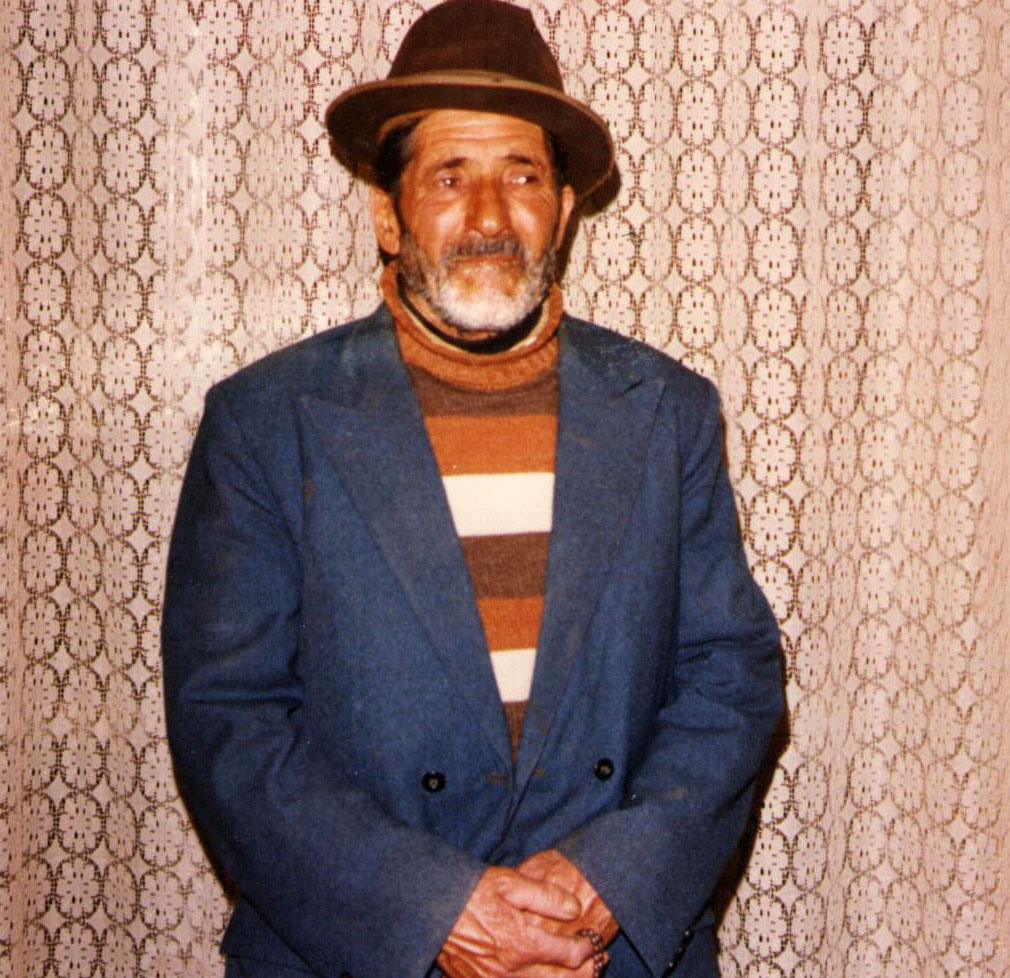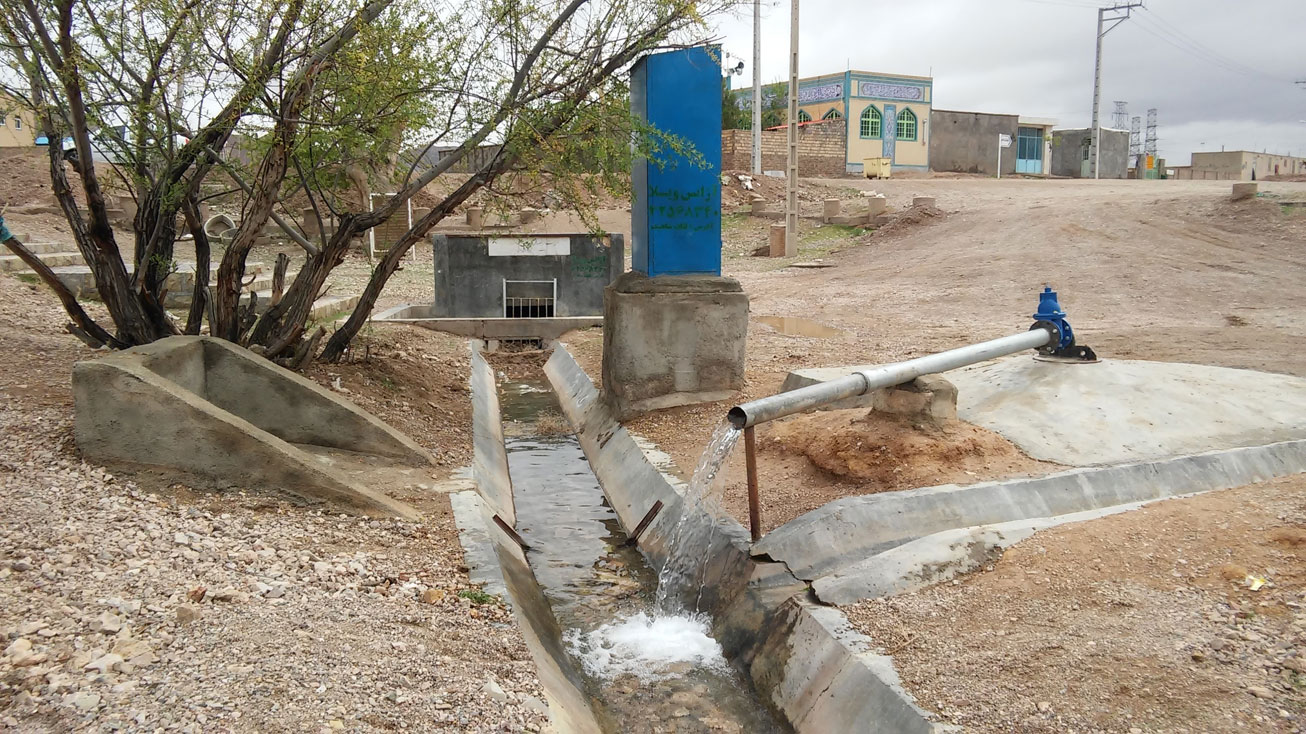
About us
Keshmoon is an online platform that connects customers directly to saffron farmers. On this page, you can find the story behind the saffron that you buy, along with information about each farmer through their profile,, get in touch with them, and buy directly from them.
But first and foremost, what is the story behind Keshmoon and what were we aiming for through its establishment?
We are Mohamad and Hamze Qaempanah, the grand sons of a farmer from Qaen. With the help of our good friend Siamak we co-founded Keshmoon.
Our grandfather, Yussof Qaempanah was the inspiration of this project. We have many wonderful memories of him, one of the most memorable being said : “When I die, I will die with my shovel in my hand.”

And just as he had said, he passed away while harvesting wheat in his farm.
With the memory of our grandfather in our hearts, we were not satisfied with our life and wanted to make it better. Simultaneously, we wanted to create a better world for farmers and consumers alike, and this was when Keshmoon took shape.
Siamak was one of the first people who supported the idea, and like a mentor, he joined our team and guided us along the way.
In our city (Qaen), there were 12 qanats,but unfortunately the last one dried out in 2015. Now instead of these marvelous ancient qanat systems, which our ancestors developed thousands of years ago, new deep wells replaced them.

Here is a picture of Qanat Shahik, the last qanat in our city, which for the last 500 years, provided water to people and farmers. Unfortunately, it has now dried out and has been blocked. Today, next to where it once flourished with water is a new well.
The qanat is an underground ancient water distribution channel that was engineered along the water table and allowed access to this life sustaining element of water for an area. However, just like many parts of Iran, the water table in Qaen has dropped by half meter each year. And the deeper the well goes, the saltier the water becomes. This is a bad news for saffron farmers, as the saffron is sensitive to salty water.
About 10 years ago, the well at Ibrahim’s farm started to dry out. So, he dug deeper to reach more water, however the salt content (Shown as Electricity Conductivity) was high, and a few years later, Ibrahim’s saffron farm was gone.
Our grandfathers were farmers.
Our fathers were also farmers, or at least farmer as a second vocation.
We, as this generation (due to the water crisis), do not even dare to think about farm work.
However, the three of us returned to our land to come face to face with the condition daunting the future of our city and its agriculture.
We were completely wondered of what a treasure we got. A plant, that unlike others, goes into hibernation in the hot summer months and grows in the cooler winter months. Furthermore, as a result of its unique life cycle, the saffron plant requires very little water.
Saffron not only requires very little water to grow, but it is also the most expensive spice in the world.
Every time a topic about saffron is being discussed amongst farmers, the first concern for the farmers has always been how most of the profit goes to the middleman, and only very little of the profit gets to the farmer. Secondly, all of the saffron that is being sold through the mainstream market at one wholesale price has traditionally been a mix from different sources, regardless of whether it is chemical free or not, and from a good farming practice or not. Thus, saffron quality is an unpredictable mix.
Last but not least, interconnectivity as a result of globalization and technology have improved significantly. Today, the world is becoming smaller as societies and, networks are linking up. The younger generation no longer wants to be seperate from the world, and this provides a great opportunity to share our agricultural treasures, such as saffron, with socially conscious citizens around the globe.
For all of the aforementioned reasons, we decided to form the online platform of Keshmoon.com.
We do not grow saffron ourselves at Keshmoon.com.
We also do not buy saffron from the farmers then resell to you.
Rather, we search for farmers who grow saffron without any synthetic chemical input, and those who are conscious about the water crisis and willing to change their traditional farming techniques in order to lessen their impact on the local water crisis.
The next step is to bring all of these farmers to our platform (Keshmoon.com).
This way, you as a customer can visit our webpage ,get to know the farmer, and select who and what quality of the saffron you want to buy.
Throughout this process, from growing, harvesting, sorting, packing , and finally delivering, Keshmoon engages in the supervision and facilitation of the transfer of saffron, ensuring the best quality saffron is sold to our customers.
We are a legally registered company under Iranian commercial law. Our registration number is 14005929136 and company name Nik Kava Afra.
Our office is located in the Science and Technology Park of Ghean in Southern Khorasan.